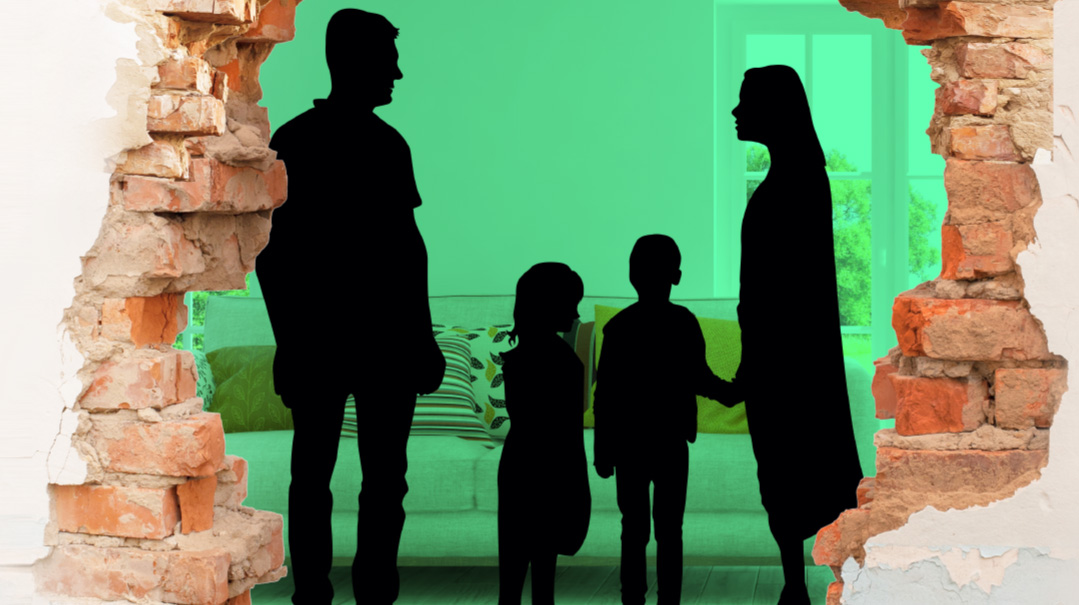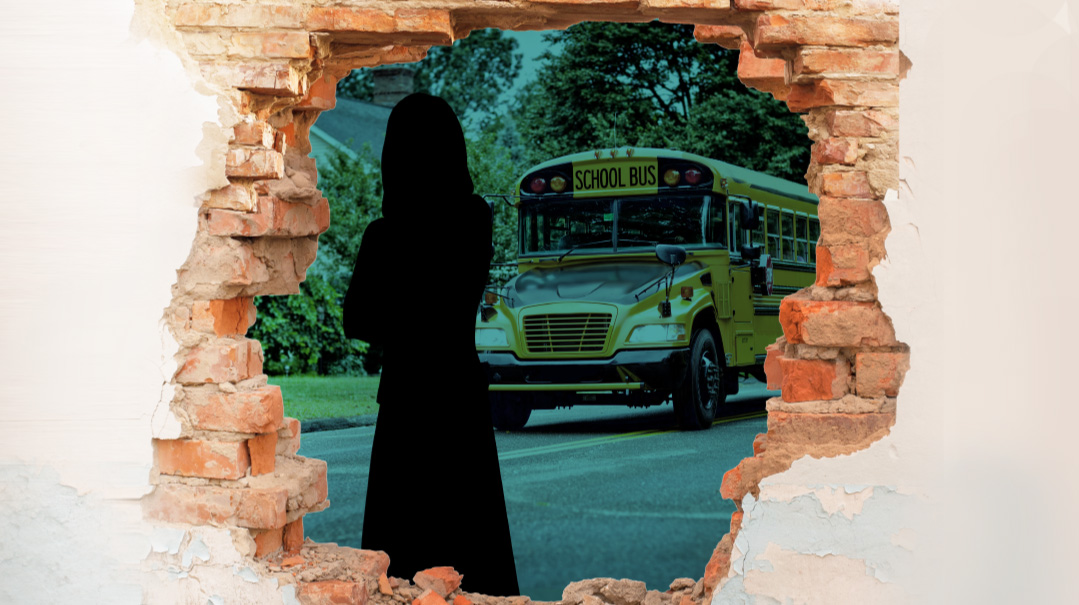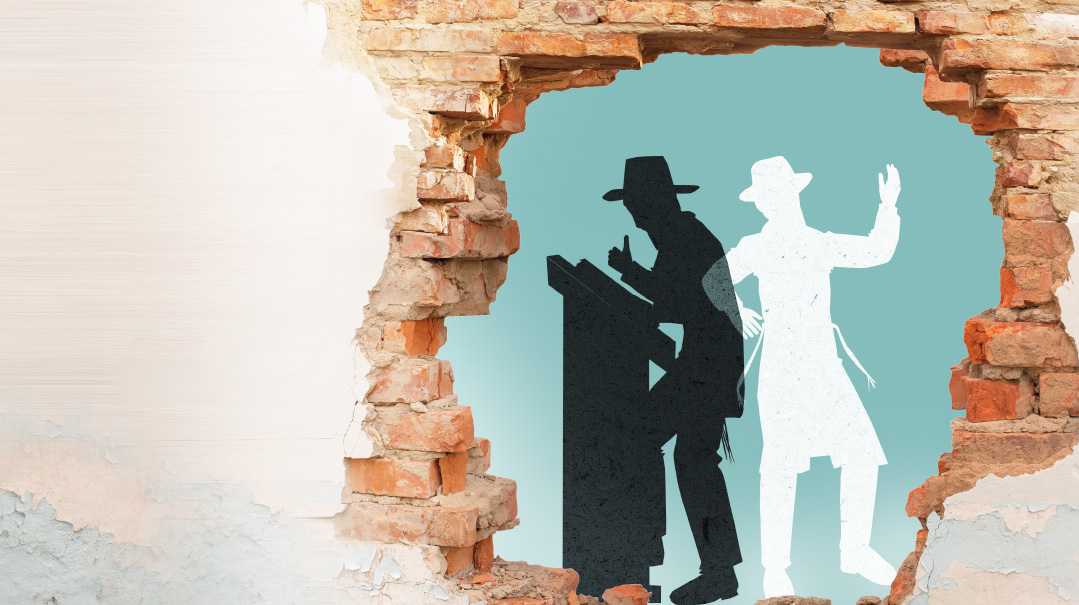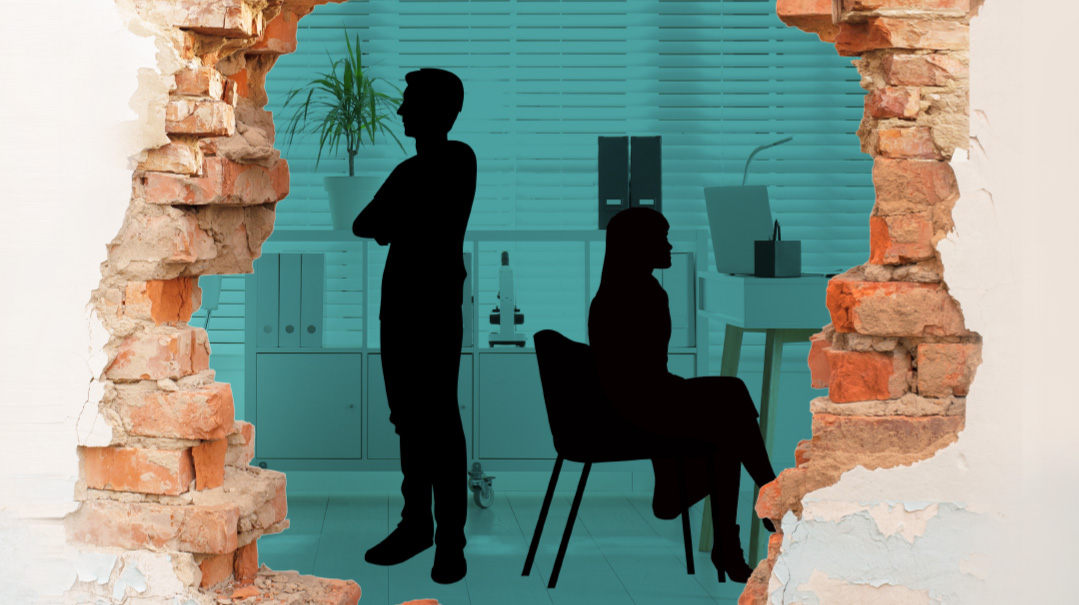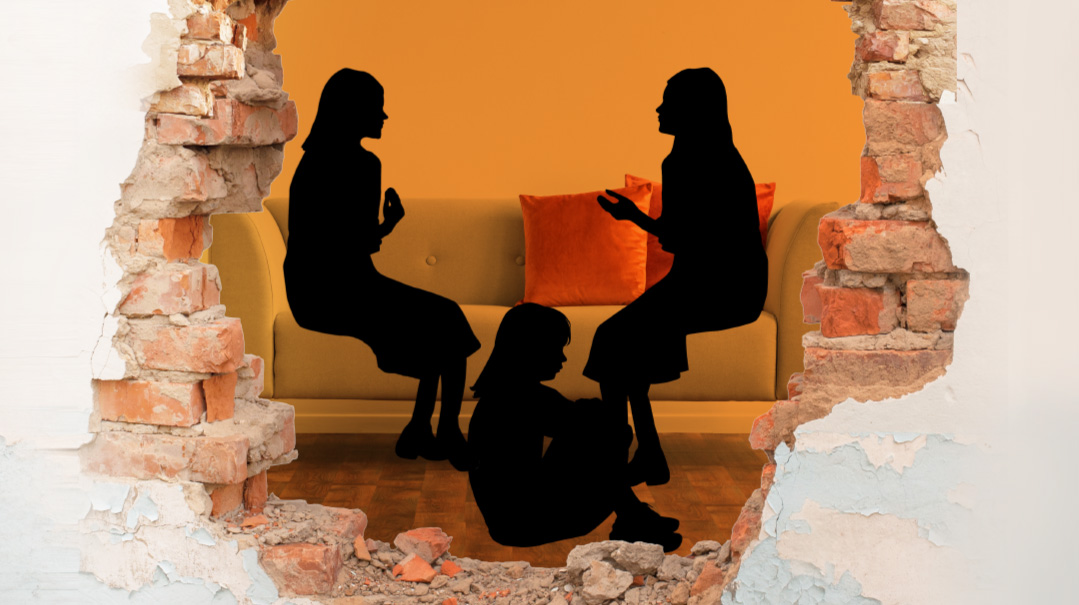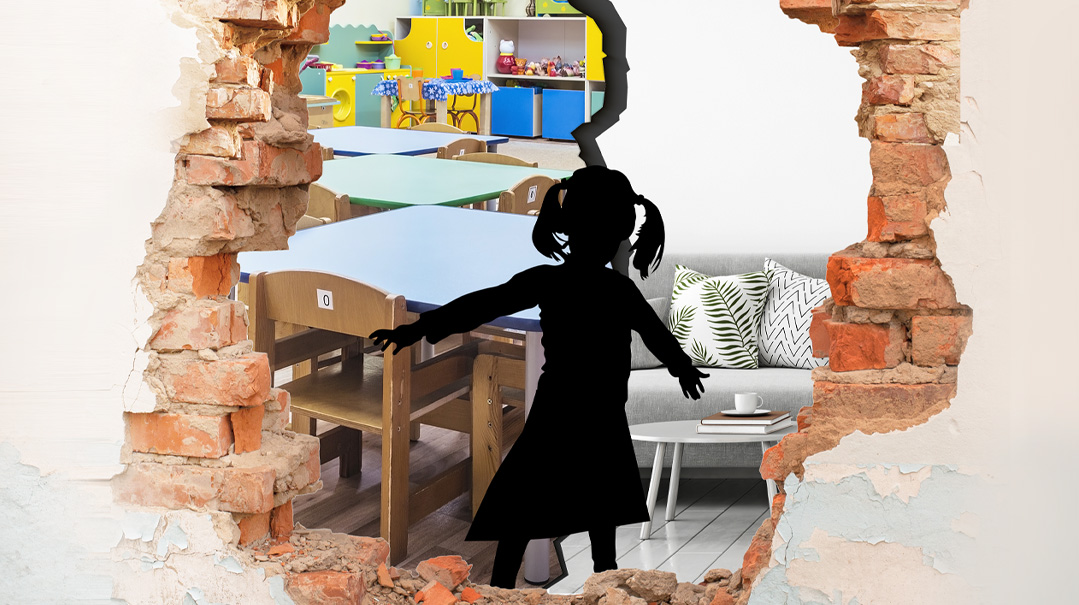Protecting My Younger Siblings

Distancing yourself from demonizing any one party or putting anyone on the defensive is key
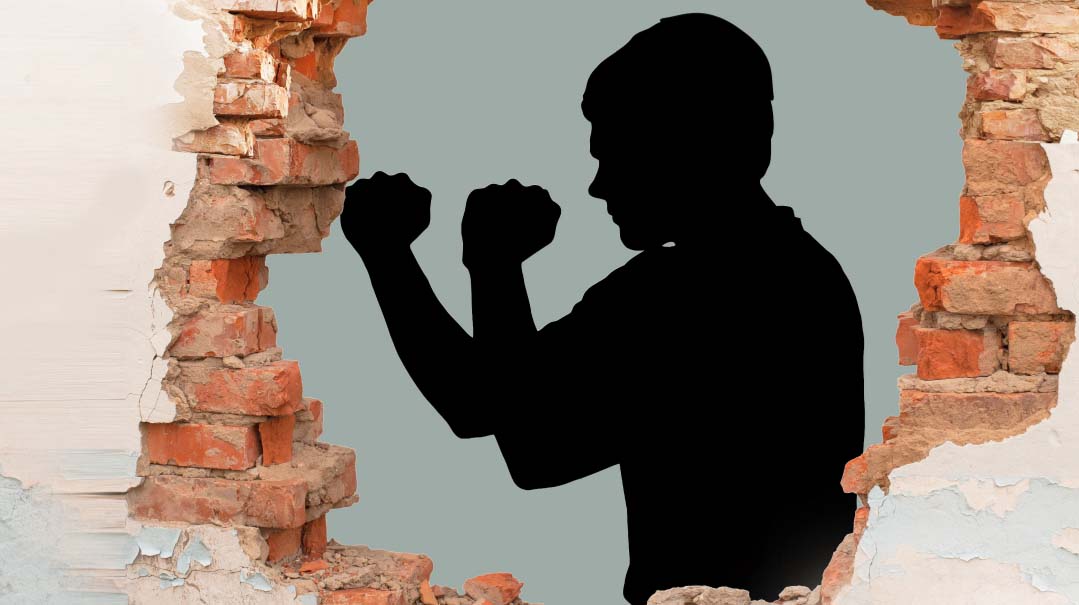
Moderated by Faigy Peritzman
I come from a small family living out of town. My situation began 15 years ago.
One of my siblings is a very difficult personality to live with. In retrospect, he may have had underlying issues, but to us siblings, he was an uncaring, unfeeling, mean person whose goal in life seemed to be bullying.
The guidance my parents received was to let this child “just be,” and eventually he’ll come around. What my parents didn’t realize at the time was that this approach was destroying their other children. Not only were we living with a bully, we had to ignore and cater to his whims. We followed our parents’ lead, but in the process, we became victims.
I never felt any resentment toward my parents because they’re amazing, caring, special parents who did what they thought was best at that time.
However, when I grew up and married, I discovered I was emotionally broken, unable to connect with my husband. I recognized that it was my choice to either live with the pain or seek help, help which had been denied me as a child.
Baruch Hashem, I’m on my journey to recovery and am now happily married with three adorable little girls. However, I still have grave concerns regarding my siblings who remain at home.
One sibling is getting married soon, and all of them have experienced the same abusive bullying from my older brother. I know they too need and deserve help and feel why wait until they’re married and struggling to maintain a relationship. However, attaining help for them means confronting my parents and explaining to them how wrong they were in the approach they’ve been taking. Is it fair to expose them to that reality, knowing how much pain it will cause them?
Much of what they did — the decisions they made and the pain they caused — they can’t undo. But they can now assist the younger children to try to repair the damage. Does that end justify causing them more pain and guilt?
Rabbi Yossi Bensoussan is mashgiach ruchani of Yeshivah High School in Cleveland. A talmid of Harav Asher Zelig Rubenstein ztz”l and a musmach from Harav Yitzchak Berkovits shlita, Rabbi Bensoussan is a nationally acclaimed lecturer on topics of crisis management, motivation, raising teenagers, and building oneself through a healthy Torah lifestyle.
I’d like to start by offering kudos to you for not minimizing your experience, for owning it enough to start working through it. Despite the many individual factors involved in your personal situation, I can only view this dilemma using the points you’ve provided.
I don’t mean to nitpick, but in my opinion, the way a question is posed is usually the best tool for responding with a practical solution. So let’s break down your question to understand its most basic points. In my view, there are three parts here: 1. facts 2. assumptions (which may or may not be true) 3. blame.
- Facts. The fact is that you were bullied by an older sibling. This bullying has clearly left you with trauma. As I said earlier, I give you a lot of credit for acknowledging this pain and working toward healing. All too often in situations of familial bullying, we write it off as “kids being kids.” You’re brave for not only calling it what it is, but for facing it. It’s important for you to own these experiences as uniquely your own. The responsibility here is to not pull others into the trauma, but rather raise yourself and those around you through it. Which brings us to the next point…
- Assumptions. I believe you’re falling into a very common trap. A therapist might call it projection. I’m not a therapist, so I’ll call it an assumption. Some of your assumptions are that the advice your parents got was to allow this sibling to terrorize you and the other children. The other assumption you’re making, which might very well be true, is that your siblings have reacted the same way as you did when they interacted with the aggressor.
It’s beyond the scope of this response to explain the intricacies of trauma. (Quite honestly, I’m not even sure I fully understand the intricacies of trauma!) But the fact is, two people can have the same experiences, and one person walks out traumatized, while the other is unscathed. It’s very important that you understand how your siblings actually were affected. What they need now after dealing with these experiences might not be the same as what you require. It may even be more extreme or deeper than your trauma, or it may be less. The point is, we don’t know, and without proper investigation, we can never assume or project.
- Blame. It’s clear from your phrasing that there are a lot of unresolved feelings of negativity toward your parents for how they handled this situation. That’s obviously understandable and valid. However, the point of working through our issues and the traumas of our past is not to simply assign blame, but rather to communicate how we feel, how we’re being affected, and most importantly, how we can develop acceptance and move on. We’re looking to remove the shame and the pent-up resentment that has been brewing all this time and fill the space we made for those emotions with acceptance and understanding.
If I were you, I’d speak with your parents — not about what your feel they did wrong, but rather how what happened has affected you. You should ask clarifying questions, not from an accusatory place, but from a place of expressing how you feel and wanting those who you love and who love you to be better understood.
Our experiences, as well as our reactions to those experiences, are real. Our desire to protect others, especially those close to us, from what we had to go through, is without a question justified. However, situations like these need to be handled carefully and with the correct guidance. There are a lot of factors here, a lot of players. Distancing yourself from demonizing any one party or putting anyone on the defensive is key.
This process can be a growing and cleansing process for your family and, if handled properly, can be extremely healing for all the parties involved. It’s my hope that you and your family can find the right words and the right messengers to weather this process.
Dr. Akiva Perlman PhD is an international speaker on topics of abuse, addiction, and trauma. He has educated several hundred frum social workers and is currently serving as a professor at Wurzweiler School of Social Work. Dr. Perlman is also the clinical director of ODA’s Wellness Institute, a clinic which serves the chassidshe community in Williamsburg. He maintains a small practice in Fresh Meadows where he resides with his wife Tamar and their children.
I must start with acknowledging the tremendous pain you’re experiencing. This is a complicated question, laden with many emotional traps. It hits home even among those who aren’t confronted with this specific issue. A rocky relationship between parents and children, no matter the issue of tension, strikes a chord.
Ultimately, this painful story reveals your feelings of betrayal, brought on by the experience of a lack of protection during your childhood and the lack of individualized attention for your needs as a person. There’s a quality of attention we all require in order to feel we matter. In this case, your needs were unmet in order to meet the needs of another.
Now, as an adult, you’re faced with the overwhelming recognition that you don’t even know what your own needs are. This happens to many people when finally entering into a safe relationship; in your case, your marriage. They realize that due to the unresolved emotional conflicts of their past, healthy emotional connection is challenging. They struggle with knowing who they are and being comfortable in their own skin. Their self-identity is underdeveloped due to not being properly honored as a person in childhood.
This causes excruciating emotional pain. It’s like being a blade of grass in the wind, with no real sense of self. While I can’t be presumptuous to know how much of this resonates with you, my sense is that this at least partially does, and my heart goes out to you. I’m very happy to hear that you’re on a healing journey.
We generally tend to be judgmental when viewing parents and families dealing with challenging children. We use that judgment as an opportunity to pat ourselves on our backs and praise ourselves for how well we’re doing. We pity the poor parties who, unfortunately, are unaware of the secrets of success we’re implementing.
If a family is dealing with a chronically ill child, they’re offered suppers for months. Families dealing with a child struggling with Yiddishkeit or a mental illness are often the most abandoned in the world.
Dear readers, as a community, we’d all be better off putting aside our innate judgment and finding compassion for others who are in a state of suffering, and even further, to offer assistance in the suffering.
So, judgment aside, let’s address this question. What method could your parents have implemented to deal with your sibling that would have prevented your negative experience?
The approach to dealing with difficult or challenged children is fragmented. There are those who encourage unconditional love, without much discipline, to provide the love that the child in pain was missing — an approach that here ultimately led to his trauma-causing behavior. The other point of view is a more tough-love approach. The child must toe the line, act a certain way, or we won’t tolerate his behavior at all.
Where do these two approaches leave families?
If parents are advised to allow a suffering child to act as he pleases, as it seems was done in this case, what message are they sending their other children? Ultimately, they’re recognizing the “suffering” child’s pain over the other children’s pain, resulting in the siblings’ feelings of betrayal and vulnerability.
There is a way, however, that one child can be treated differently, and the siblings not feel resentment and betrayal. This approach requires a great deal of sensitivity, yet when done correctly, the children aren’t only protected from abuse, but also gain a deeper understanding and compassion for others.
The essential message that must be conveyed to all children in the family is that you, and you alone, do matter. As parents, we don’t fill one child’s needs by ignoring the others’. Just like your brother is in pain and acting out from his pain and we recognize that, we also recognize your pain, even if it’s more subtle and appears less urgent. Just like we, as parents, support your brother in his suffering, we’re committed to support you and stand behind you. Even if what you need may be different and may appear less urgent than what your sibling needs, you also matter. Even if less dramatic or urgent, your pain is still important to us. Talk about what’s bothering you, tell us what you need, how you’re feeling.
When parents can convey this sentiment, the children of such families ultimately benefit from this nisayon. They see themselves as important, and they’re confident their needs will be met. When they don’t have to fight to get their own needs met, they’ll have space to learn compassion in the face of suffering and to have sensitivity to another’s pain. They’ll approach the world with open-mindedness, realizing that people aren’t identical and everyone deserves an individual approach. They’ll also communicate their feelings and emotions more efficiently and accurately. These children can expand their hearts to develop love for all people, not just for those who act a certain way, and they learn to accept others despite their difficult behavior.
When one has a sense of love and acceptance of others, then he has it for himself as well. We all need self-acceptance. We all have innate shortcoming within us, and teaching a child to understand his brother is teaching him a lifelong essential skill.
The tragedy of this story is that it didn’t have to be this way. The parents gave the message of unconditional love to their difficult child, but they missed the soul of the message — that this same love must extend to every one of their children.
To address your practical question here, I do feel you should speak to your parents at this juncture. Not to shame them, but to educate them, and to help the other children in the home. You can help provide a different reality for your siblings who continue to live in such a situation. You can help give them the capacity to become more wholesome and comfortable people who don’t struggle with the challenges you’re currently battling. I wish you much hatzlachah in your journey.
Nina Kaweblum is a Linehan Board Certified DBT Therapist with a private practice in Lakewood. She works with adults, adolescents, and families.
From your letter, it’s clear that you care very much about your parents and your siblings, and you want to be sensitive to both. Your question depicts your parents’ need not to be hurt as conflicting with your siblings’ need for help in healing from your brother’s bullying, and you say you’re not sure whose needs take precedent.
My initial thought is that perhaps you can do both: Speak to your parents about getting your siblings help in a way that’s considerate of your parents’ feelings.
You describe your parents as “amazing, caring, special parents who did what they thought was best at that time.” What if you begin the conversation by appreciating that your parents sought guidance and didn’t ignore the issue? You can also validate your parents’ intentions to do what they thought was best and emphasize that you “never felt resentment.” You’re setting up a context in which your parents feel appreciated for their attempts to make things better for you and your siblings, a context of viewing your parents as caring and helpful problem solvers.
Once your parents see that you view them as part of the solution, you can then ask for the change that you want: therapy for your siblings. You can emphasize the positive role your parents can have on your siblings’ futures, rather than highlighting past mistakes that can’t be undone. Additionally, if your older brother still bullies your other siblings, help for him would make a difference not only for your other siblings, but may provide healing for him as well. Bullies are very unhappy people who use cruelty to others to try to soothe their own pain.
This advice can work if — and only if — your parents are able to take in your validation. It’s hard to tell from your letter whether they’ll be able to appreciate this or if your concern that it’s too painful for them is accurate. If you see that it’s too hard for your parents despite your best efforts, all isn’t lost. You can speak to your siblings and discuss the emotional work you’ve done and see if your siblings are open to you sharing what you’ve learned and to taking your guidance. Sometimes, therapy isn’t the only approach!
However, if you try and see that your siblings need more than you can provide — meaning, they need actual therapy, not just a listening ear — you and your siblings can then discuss the best way to broach this with your parents (maybe consult your family’s rav, a mentor, etc.).
One last thought (which should actually be done first): Make sure that siblings feel the way that you do. Just as each person has a unique neshamah and personality, each person is affected differently by the same person. Additionally, you and each one of your siblings have other unique qualities and life circumstances (popularity, close friends, academic success, talent in music, art, or sports, closeness to extended family or rebbeim or morahs) that could have either mitigated or exacerbated how much your brother’s bullying affected them.
While therapy can be a life-changer, and even a life-saver for some, if a child does not have a problem, treating them as if they do can cause trouble. It can make the child confused and leave him wonder if something is wrong with him when he thought he was fine, or suddenly see himself as damaged and troubled, or cause him to become angry at his parents for trying to pathologize him.
Wishing you much hatzlachah!
(Originally featured in Family First, Issue 774)
Oops! We could not locate your form.





